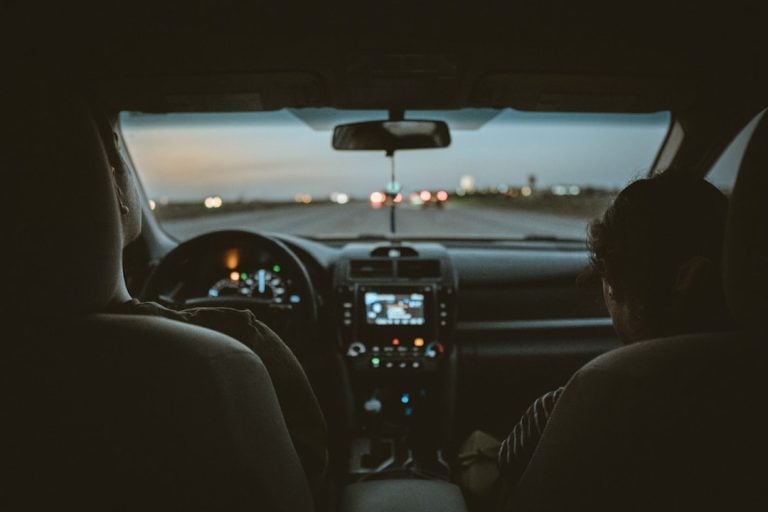Everything You Need to Know About Why Driving Makes You Tired
Understanding Why Driving Makes You Tired
Driving is often perceived as a simple task—just sit, steer, and navigate. However, the reality is that it can be surprisingly exhausting. Several interconnected factors contribute to this phenomenon, such as driver fatigue, sleep deprivation, circadian rhythms, and mental exhaustion. Let’s explore these elements further to understand why driving can leave us feeling drained.
Key Contributors to Driving Fatigue
1. Driver Fatigue: Prolonged attention to the road can wear on your focus, leading to slowed reaction times and impaired decision-making.
2. Sleep Deprivation: Inadequate sleep creates a sleep debt that makes it challenging to stay alert. Just one night of poor sleep can significantly impair your driving capabilities.
3. Circadian Rhythm: Our bodies operate on natural cycles that evolve throughout the day. These cycles can cause dips in energy, contributing to tiredness during long drives, especially at inopportune times.
4. Mental Exhaustion: Driving requires constant vigilance and decision-making, making it more taxing than simply sitting still.
Through my own research and experience, I’ve gained valuable insights into why driving makes you tired and how crucial sleep is in mitigating this fatigue. The rest of this article will not only deepen your understanding but also offer practical solutions to combat tiredness on the road.
The Science Behind Driver Fatigue
To truly grasp why driving makes you tired, we need to delve into how your body’s internal clocks affect your alertness. Understanding these mechanisms can help you manage fatigue better.
Circadian Rhythm
Your body’s circadian rhythm functions as its internal clock, regulating your sleep-wake cycle over a 24-hour period. Understanding this rhythm can shed light on your daily energy fluctuations:
– Daytime Alertness: When the sun is up, your body inhibits melatonin production, keeping you awake and alert.
– Nighttime Sleepiness: As darkness falls, melatonin levels rise, preparing your body for sleep.
Melatonin Production
Often referred to as the “sleep hormone,” melatonin plays a critical role in regulating your sleep patterns:
– Nighttime Increase: High melatonin levels at night help you fall asleep effectively.
– Afternoon Slump: A smaller afternoon spike can cause drowsiness, making you less equipped to drive safely.
Internal Body Clock
Your internal clock synchronizes with the natural light and dark cycles, deeply influencing your circadian rhythm, melatonin levels, and overall alertness.
– Shift Work & Jet Lag: Both can disrupt this clock, leading to increased fatigue and a higher risk of accidents.
Sleep Cycles
Sleep occurs in roughly 90-minute cycles, including stages from light sleep to deep sleep and REM sleep, each critical for proper restoration:
– Light Sleep: Easier to wake from but offers limited restoration.
– Deep Sleep: Essential for physical and mental recovery, harder to wake from.
By understanding these biological elements, you can see why even a simple act like driving can become overwhelming when your rhythms are out of sync.
Common Causes of Fatigue While Driving
Several factors can exacerbate driving fatigue, making it essential to recognize them to stay alert behind the wheel.
Lack of Sleep
Insufficient sleep is the primary cause of driving fatigue. Missing even a few hours can lead to significant drowsiness and reduced alertness. Prioritize getting 7-9 hours of quality sleep to enhance performance.
Time of Day
Driving at certain times, like the post-lunch slump or early mornings, aligns with your natural circadian low points. This can dramatically decrease alertness.
Dehydration and Hunger
Feeling hungry or dehydrated can heighten feelings of fatigue. Simple solutions include:
– Low GI Foods: Opt for whole grains and proteins to maintain steady energy levels.
– Hydration: Drink water consistently to fend off sluggishness.
Monotonous Routes
Long stretches of road with minimal stimulation can make it easy to zone out. Choose varied routes to keep your mind engaged.
Driving Alone
Driving solo can lead to zoning out, increasing fatigue risk. Consider having a passenger for conversation and shared responsibility.
By recognizing these common causes, you can implement strategies to combat fatigue while driving.
Effective Strategies to Counteract Driving Fatigue
Pre-Drive Preparation
1. Adequate Sleep: Ensure you get 7-8 hours of sleep before a long drive. Starting well-rested is crucial for safety.
2. Avoid Alcohol: Even small amounts of alcohol can impair your ability to drive safely.
3. Check Medications: Be aware of any prescriptions that may cause drowsiness.
During the Drive
1. Take Regular Breaks: Stop every two hours to stretch and refresh. Following NHTSA recommendations can drastically enhance alertness.
2. Healthy Snacks and Caffeine: Keep a mix of low GI snacks with plenty of water and occasional caffeine to maintain your energy.
3. Short Naps: If fatigue strikes, a 20-minute nap in a safe location can significantly boost alertness.
4. Choose Engaging Routes: Opt for routes with curves and scenery that demand your attention, preventing boredom.
5. Avoid Peak Drowsiness Periods: Plan drives to coincide with your natural alertness, steering clear of late nights and midday dips.
6. Co-Driver: If possible, travel with someone who can take turns driving and keep you engaged.
By adopting these measures, you can enhance your focus and combat the draining effects of driving fatigue.
Final Thoughts on Driving Fatigue
Understanding the reasons behind why driving makes you tired is vital for improving your safety on the road. The importance of sleep can’t be overstated; sacrificing sleep can lead to serious consequences, including drowsy driving incidents.
By prioritizing adequate rest, employing practical strategies, and recognizing the signs of fatigue, you can significantly reduce the risks associated with driving tired.
Wherever your journey leads, ensure you stay vigilant and prioritize your sleep and well-being. Safe driving is not just essential for you but also for everyone on the road. Stay alert, stay safe, and drive wisely!


















